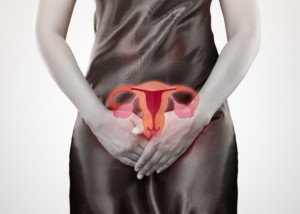
Sometimes, menstrual problems make women wish they were born a man. Can a baby ever really be worth all this trouble?
Well of course, for those whose maternal instincts are driving at them.
But it’s an undisputed fact: Periods Are a Pain!
Some women are literally disabled for two or three days, curled up in bed with a hot water bottle, dreading every time they must exit their bed and use the toilet.
Menstrual cramps can be so agonizing that a woman will forego eating and drinking water, no matter how hungry or thirsty, just to maintain her tight ball of a position with the heating pad.
Oh, of course, she’ll definitely get up to upchuck, but then promptly get back into her defensive position.
When period pain hits like this, you have no choice but to ride it out and let it run its course.
- Missed Periods and Mental Stress: The Connection
- Why is there blood in your cervical mucous after menstruation ends?
- Why You Have Menstrual Cramps Mid-Cycle
One of the problems that many women experience with their monthly cycle is the persistence of abdominal cramping after the end of their period.
A normal cycle does not cause its associated cramps to continue when the bleeding stops.
It could be a coincidence that the aching continues, being caused by something unrelated to the monthly cycle.
Another common issue is prolonged bleeding during menstration.
It may seem like your period is extra long, but what might be going on is another, unrelated cause of the prolonged vaginal bleeding.
If the bleeding (not residual spotting of old blood, but actual bright red bleeding) goes beyond seven days, you need to find out why this is happening.
Though this is not normal, this doesn’t mean the cause is a serious medical problem, either.
But a check by your doctor will determine what’s behind this sign so that the cause can be treated promptly.
Many women wonder about a somewhat reverse situation: spotting a week before their period starts.
Ideally, you’ll want to see a gynecologist who has a special focus on menstruation for any of your concerns and especially worries or new symptoms.
A gynecologist specializing in menstruation typically has deeper expertise in diagnosing and treating menstrual disorders, such as irregular cycles, heavy bleeding, painful periods (dysmenorrhea) or conditions like polycystic ovary syndrome (PCOS) or endometriosis.
These specialists are more likely to stay up-to-date with the latest treatments and research specific to menstrual health.
In contrast, a general gynecologist provides broader care for a range of reproductive health issues, such as routine Pap smears, contraception and pregnancy-related care, but may not have the same level of expertise or experience in managing complex menstrual issues.
 Lorra Garrick has been covering medical, fitness and cybersecurity topics for many years, having written thousands of articles for print magazines and websites, including as a ghostwriter. She’s also a former ACE-certified personal trainer.
Lorra Garrick has been covering medical, fitness and cybersecurity topics for many years, having written thousands of articles for print magazines and websites, including as a ghostwriter. She’s also a former ACE-certified personal trainer.
.









































